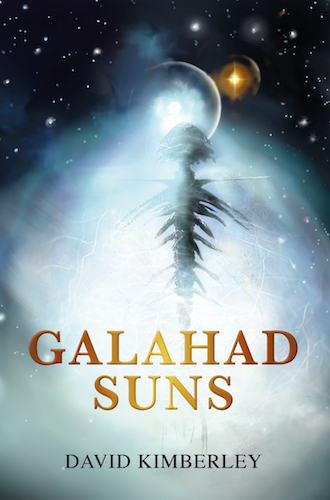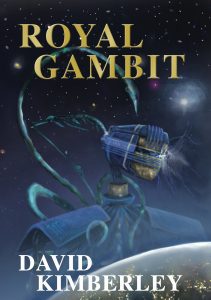PLAYING THE ASSASSIN
Scene 1: Darkness engulfs the city. Shadows move fleetingly across rain swept streets and rows of derelict, crumbling buildings. The atmosphere is one of uneasy calm. Mercenary Davian Kircher is closing in on serial killer Edlan Rane, one of the most wanted men in the universe. His orders are to kill him. The assignment is tough, but the financial rewards outweigh the danger.
Scene 2: Justyne Frost, Kircher’s friend, business partner and the pilot of their space ship Kaladine, sends him continuous data on Rust’s movements. He is already within sight yet just as Kircher is about to pounce, he is ordered to abort the mission in favour of an alternative assignment more challenging and lucrative than anything he has taken on before.
Scene 3: Kircher’s orders are to track down seven highly dangerous criminals, one of whom has been unknowingly implanted with a unique computer microchip. What’s on the chip and who is the carrier?
No, this isn’t a film script but a synopsis of David Kimberley’s excellent debut science fiction novel Galahad Suns. What makes it work? To begin with it has an exciting plot, strong characters (some more reprehensible than others), backed up with powerful writing and high drama. It also has “shoot from the hip” dialogue, a morally flawed yet sympathetic protagonist, an atmosphere brooding with menace, and a cinematic quality that encompasses the darkness of Blade Runner, the freneticism of Battlestar Galactica, and the time overlap themes of Star Wars. Science fiction as a literary genre is constantly shifting and Kimberley is among the new breed of authors testing and pushing its boundaries. The universe that is Davian Kircher’s stomping ground is a place of danger and uncertainty. Planets are governed by authorities with their own hidden agendas, human life is alarmingly cheap while a peace accord sustained after decades of conflict, is in a critically fragile condition. Kircher doesn’t give a damn, just as long as he gets paid, although his attitude starts to shift when it dawns on him that he has underestimated both the assignment and the machinations going on behind the scenes. Is he being manipulated and if so who is pulling the strings? Could it be the seven captured convicts, his paymaster, the ruthlessly ambitious commander of Taurus Galahad, or is Kircher the victim of his own drug induced paranoia? He is an addict in denial of his problem, even though it is obvious to everyone on board his ship that he is struggling with severe withdrawal symptoms. Can he stay clean long enough to maintain his authority and locate the chip?
Galahad Suns is an impressive work for a first-time author. Kimberley writes with depth, assuredness, and pathos. In the vast aloneness of space Kircher’s struggle with addiction is painful to watch. His over-wired brain is drowning in the Kaladine’s claustrophobic environment, while his body is racked with agonising drug induced convulsions. He is a wretched figure, yet he is also a bizarre symbol of a world which though it has gone wrong, does have some redeeming features. Surprisingly, love and compassion survive in this dystopian vacuum and even Kircher isn’t immune to their impact. Galahad Suns is a bleak but absorbing book thanks to some high-quality writing and characters who challenge every preconception, notably the seven convicts. Branded as dangerous, anti-social misfits most of them have a back story that gives a context to what they have become. Some had been tortured or raped, others psychologically abused while only one of them is pure, walking evil.
David Kimberley is a talent to watch and in Galahad Suns he has prepared the ground for a sequel that promises to be remarkable.
Reviewed by Juliette Foster
© Archant Community Media Limited used under limited licence
Why not add Nova Descent and Royal Gambit, the second and third books in the Antecedent series, to your David Kimberley collection?
Click on the covers to find out more about these books by the author.






